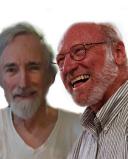Guilt
Twilight of the Emotions #4: Guilt
Why did guilt evolve in human beings and what purpose does it serve now?
Posted March 7, 2021 Reviewed by Ekua Hagan
Why did humans evolve the capacity to feel guilt? It is such a nasty feeling! It limits what people can do and, in particular, what people can allow themselves to enjoy.
Sigmund Freud was really down on this emotion. In Civilization and Its Discontents, he claimed that “the price we pay for our advance in civilization is a loss of happiness through the heightening of the sense of guilt” (italics added). We take Freud’s “advance of civilization” to mean what came after the agricultural revolution: the disappearance of the hunting and gathering way of life and the decline of reciprocity as the basis of society.
In order to be part of our species’ evolution, the nastiness of guilt must have been outweighed by some compensatory advantage, some positive effect on survival and reproduction. We hypothesize that this advantage lay in the ability of guilt to limit friction between members of a band and prevent disruption of the community. Guilt evolved, one might say, as the equivalent of a nose for what a hunting-gathering band considered unacceptable.
Guilt could serve this purpose because we humans have evolved the capacity to feel guilty about acts we have not committed—wishes, desires, feelings, dreams, and thoughts. In a band, if someone considered, contemplated, or imagined cheating on others—say getting more than a rightful share of a kill—he or she would most likely start to feel something unpleasant enough to function as a deterrent. In this way, guilt helped regulate a society that was based on reciprocal altruism[1].
When the god of the Old Testament arrived on the scene, guilt began to change shape. Offenses against god’s law were added to the list of acts that were frowned upon by society. And god, the prophets said, disapproved of an endless catalog of acts, such as the eating of shellfish, that had nothing to do with reciprocal exchange, fairness, or relationships between members of a group.
The number and types of acts that were deemed guilt-worthy further expanded in the medieval Catholic Church. Take, for example, the Church’s demand that everyone confess “every conceivable thought and deed, from oversleeping to masturbation” (Ozment, 1980). The Church’s hefty compilation of evil was obviously not designed to deter conflict or promote cooperative personal relationships. But it did reinforce the Church’s authority.
The guilt that developed over these new kinds of misdeeds—these sins—doesn’t involve anyone else. It’s a judgment on oneself, a private matter, or, for believers, a matter between oneself and one’s god.
There is something odd about this variety of guilt. People have a hard time differentiating it from shame, an emotion we find little trace of in accounts of hunter-gatherer life. The confusion—or at least the overlap—between these two emotions is obvious in Arthur Miller's classic play, "Death of a Salesman." The salesman, Willy Loman, has suffered years of guilt because his son Biff, a high school football hero, once found him in bed with a woman other than his mother. Was this guilt or shame?
For significant segments of contemporary Western culture, guilt has been pushed aside. The generations that came of age starting in the 1960s took it upon themselves to conquer their guilt rather than their desires. They sought to raise their children using praise instead of guilt, hoping to ensure a lifetime of self-satisfaction. They ushered in a culture of self-realization that freed people from the rules and expectations of community life, religious or secular. The experiment is still in progress.
One might speculate that the motivation to dispense with guilt was at least in part driven by the inclusion, in guilt, of so many “offenses” that belong in the private, subterranean realms of shame. To the modern mind, too many of those offenses can seem useless, irrelevant, arbitrary, artificial, and lacking in social utility. You should feel guilt if you rob your neighbor, cheat your friend, or damage your society. But oversleeping?
References
[1] To be sure, guilt did not act alone. It would have been aided by fear of the righteous anger that occurred when someone in the band cheated or broke a taboo. The emotions at that time tended to work as a system.
Freud, Sigmund. 1930/1962. Civilization And Its Discontents. New York: Penguin.
Ozment, Steven. 1980. The Age Of Reform. New Haven, CT: Yale University Press.


